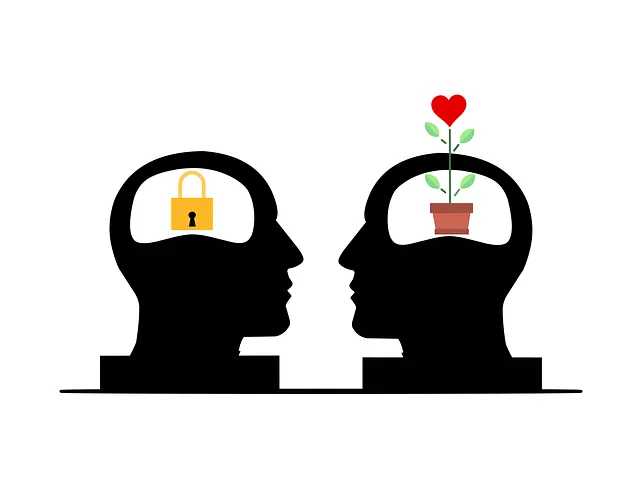In today's fast-paced world, mental wellness is a growing concern, leading to increased demand for accessible support. Organizations like Kaiser Permanente recognize this need and offer comprehensive Mental Health Services in Littleton, Colorado, including individual therapy, stress management, and anxiety disorder support. Digital mental wellness apps are gaining popularity as convenient, discrete tools for stress management, mindfulness, and teletherapy. These apps, integrated with evidence-based practices, promote early intervention, risk management, and positive thinking, empowering users to take control of their mental health. With the Kaiser Permanente mental health number Littleton readily available, these apps offer personalized meditation, mood tracking, and community support, catering to diverse user needs, from healthcare professionals to individuals seeking trauma services. Effective marketing, engaging content, and partnerships are key to success in this space, fostering a supportive online community for mental wellness.
In today’s fast-paced digital age, the demand for accessible mental wellness solutions is on the rise. This trend is highlighted by the success of programs like Kaiser Permanente’s mental health services in Littleton, showcasing the impact of technology in enhancing well-being. Our article explores this burgeoning space, focusing on app development as a powerful tool. We’ll delve into the crucial need for such apps, key features making them effective, and evidence-based practices that drive successful design. Additionally, marketing strategies and user engagement tactics will be discussed to ensure mental wellness apps make a tangible difference.
- Understanding the Growing Need for Mental Wellness Apps
- Kaiser Permanente Mental Health Services and Their Impact
- Developing an Effective Mental Wellness App: Key Features
- Integrating Evidence-Based Practices in App Design
- Marketing and User Engagement Strategies for Success
Understanding the Growing Need for Mental Wellness Apps

In today’s fast-paced world, mental wellness has emerged as a paramount concern, driving the demand for innovative solutions like mental wellness apps. The need for such applications is increasingly evident, given the rise in stress-related issues, anxiety disorders, and depression, especially among young adults. Organizations like Kaiser Permanente recognize this growing demand, highlighting the importance of accessible and personalized mental health support. The Littleton community, among others, has witnessed a surge in interest towards mental wellness, underscoring the pressing need for digital tools that foster positive thinking and emotional well-being.
Traditional methods of seeking help may not cater to everyone’s preferences or accessibility needs. Mental wellness apps offer a convenient, discrete way for individuals to manage their mental health. They provide resources for stress management, mindfulness exercises, and even teletherapy sessions, all designed to enhance users’ coping mechanisms and overall mental resilience. Moreover, these applications can facilitate early intervention, preventing the escalation of issues, and supporting the implementation of effective risk management planning for mental health professionals. The integration of mind over matter principles within these apps further reinforces their potential in promoting positive thinking and empowering individuals to take control of their mental wellness.
Kaiser Permanente Mental Health Services and Their Impact

Kaiser Permanente, a renowned healthcare organization, offers comprehensive Mental Health Services that have significantly impacted individuals seeking support for their emotional well-being. With a dedicated team of professionals, they provide a range of programs tailored to various mental health needs. The Kaiser Permanente mental health number in Littleton serves as a vital resource for the community, ensuring easy access to expert care.
Their services encompass a wide spectrum, from individual therapy and group support sessions to specialized programs focusing on stress management, anxiety disorders, depression, and more. One notable aspect is their emphasis on evidence-based practices, including conflict resolution techniques and positive thinking exercises, which foster emotional healing processes. This holistic approach has garnered recognition for its effectiveness in promoting mental wellness among diverse populations.
Developing an Effective Mental Wellness App: Key Features

In today’s digital age, developing a mental wellness app is more crucial than ever. Apps designed to support emotional well-being can play a significant role in promoting positive thinking and providing accessible trauma support services, especially for those seeking resources like the Kaiser Permanente mental health number Littleton. An effective mental wellness app should include key features such as personalized meditation and mindfulness exercises tailored to users’ needs, daily mood tracking to help identify patterns, and access to a community of peers for support and shared experiences.
Additionally, incorporating evidence-based techniques for emotional well-being promotion can enhance the app’s effectiveness. This may include features like guided visualizations, cognitive-behavioral therapy (CBT) exercises, and educational content on mental health topics. By integrating these elements seamlessly, users can access a comprehensive toolkit to support their mental wellness journey at their own pace and convenience, ensuring they receive the necessary assistance, whether they’re seeking stress reduction or trauma recovery.
Integrating Evidence-Based Practices in App Design

In the realm of mental wellness app development, integrating evidence-based practices is paramount. Apps like those offered by Kaiser Permanente, which leverages their extensive knowledge and resources, play a crucial role in promoting emotional healing processes. By incorporating strategies backed by scientific research, these applications can effectively support users navigating various mental health challenges, including self-esteem improvement and trauma support services. For instance, the Littleton area, known for its focus on community wellness, has seen success with apps utilizing cognitive-behavioral therapy (CBT) techniques, mindfulness exercises, and personalized tracking features to monitor progress.
This approach ensures that users receive reliable and effective tools tailored to their needs. Incorporating features like mood tracking, meditation guides, and resources for stress management, these apps empower individuals to take charge of their mental wellness. By drawing on the expertise of healthcare professionals and leveraging digital technology, developers can create inclusive and accessible solutions that cater to diverse user requirements, making mental health support readily available, especially for those seeking alternatives beyond traditional therapy settings.
Marketing and User Engagement Strategies for Success

Marketing and user engagement are pivotal aspects of an app’s success, especially within the mental wellness space. To stand out, apps must appeal to their target audience while adhering to essential ethical standards. Incorporating strategies that promote Mental Health Awareness can significantly boost engagement. For instance, leveraging the Kaiser Permanente mental health number Littleton as a reference point for local support can create a sense of community and trust among users.
Effective marketing involves understanding your user base, which for mental wellness apps may include healthcare providers looking for Burnout Prevention Strategies or individuals seeking culturally sensitive services. Utilizing social media platforms to share success stories, offer tips on Cultural Sensitivity in Mental Healthcare Practice, and highlight app features can attract and retain users. Regular updates, interactive content, and partnerships with mental health influencers are also proven methods to enhance user engagement and foster a supportive online community.
The development of mental wellness apps, backed by evidence-based practices, is a promising strategy to address the growing need for accessible mental healthcare. As demonstrated by Kaiser Permanente’s successful mental health services in Littleton, these digital tools can significantly improve user well-being and provide much-needed support. By incorporating key features and integrating effective therapies, developers can create apps that make a tangible difference. Moreover, adopting innovative marketing and engagement strategies ensures wider adoption and fosters a community around mental wellness. With the right approach, mental wellness apps have the potential to revolutionize access to care, making professional help more accessible and affordable for all.






